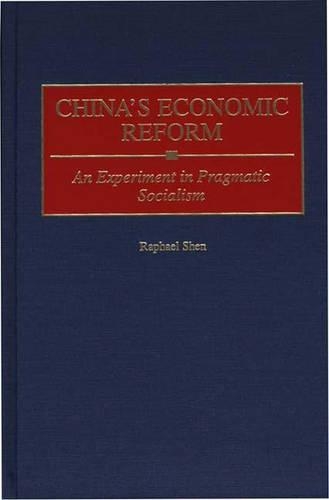
China's Economic Reform: An Experiment in Pragmatic Socialism
(Hardback)
Publishing Details
China's Economic Reform: An Experiment in Pragmatic Socialism
By (Author) Raphael Shen
Bloomsbury Publishing PLC
Praeger Publishers Inc
28th February 2000
United States
Classifications
Tertiary Education
Non Fiction
Political economy
Economic systems and structures
Economic history
330.951
Physical Properties
Hardback
240
Description
Both Mao Zedong and Deng Xiaoping drastically altered the course of contemporary China's economic development using opposing strategies. Mao froze China's economic system in a perennial state of consumer goods shortages and pervasive macro disequilibria. Deng, however, began thawing a rigidly structured system by introducing experimental reform measures. Mao's revolutionary rhetoric brought China's economy to the brink of bankruptcy. Deng's ideological pragmatism netted China glowing successes. Mao closed China to the outside world. Deng engineered China's reintegration into the world economy. Dismantling a dysfunctional system and replacing it with a dynamic new one involving 1.2 billion people is risk-laden. Reform in China began in 1978. It was tentative and experimental, confining reform to organizational and administrative decentralization on farms. Successes on farms ushered in reform elsewhere in the economy. Over time, market-based coordinating mechanisms progressively began replacing the system's control devices. Results from decentralization internally reinforced those from liberalization externally. This consequently transformed China's stale, distorted system into a more competitive, bustling new one ready for developmental takeoff. Its meteoric rise among the world's leading markets in recent years has thrust China's economy to the forefront of growth and development. Controlled, phased reform is yielding dividends, not only for its own consumers but for international economic cooperation and growth as well.
Reviews
Shen provides an excellent, broad overview, identifying areas where reforms has been successful, where reforms have lagged, and where significant change remains to be undertaken. He also provides broad policy presciptions for future reforms....to understand how China's economic reforms have their current state, this is a valuabe work.-Choice
"Shen provides an excellent, broad overview, identifying areas where reforms has been successful, where reforms have lagged, and where significant change remains to be undertaken. He also provides broad policy presciptions for future reforms....to understand how China's economic reforms have their current state, this is a valuabe work."-Choice
Author Bio
RAPHAEL SHEN is Professor of Economics at the University of Detroit./e He is the author of numerous books on economies in transition. His latest publications include Ukraine's Economic Reform (Praeger, 1996) and The Restructuring of Romania's Economy (Praeger, 1997).
